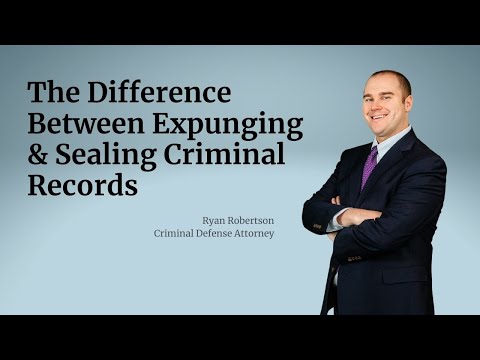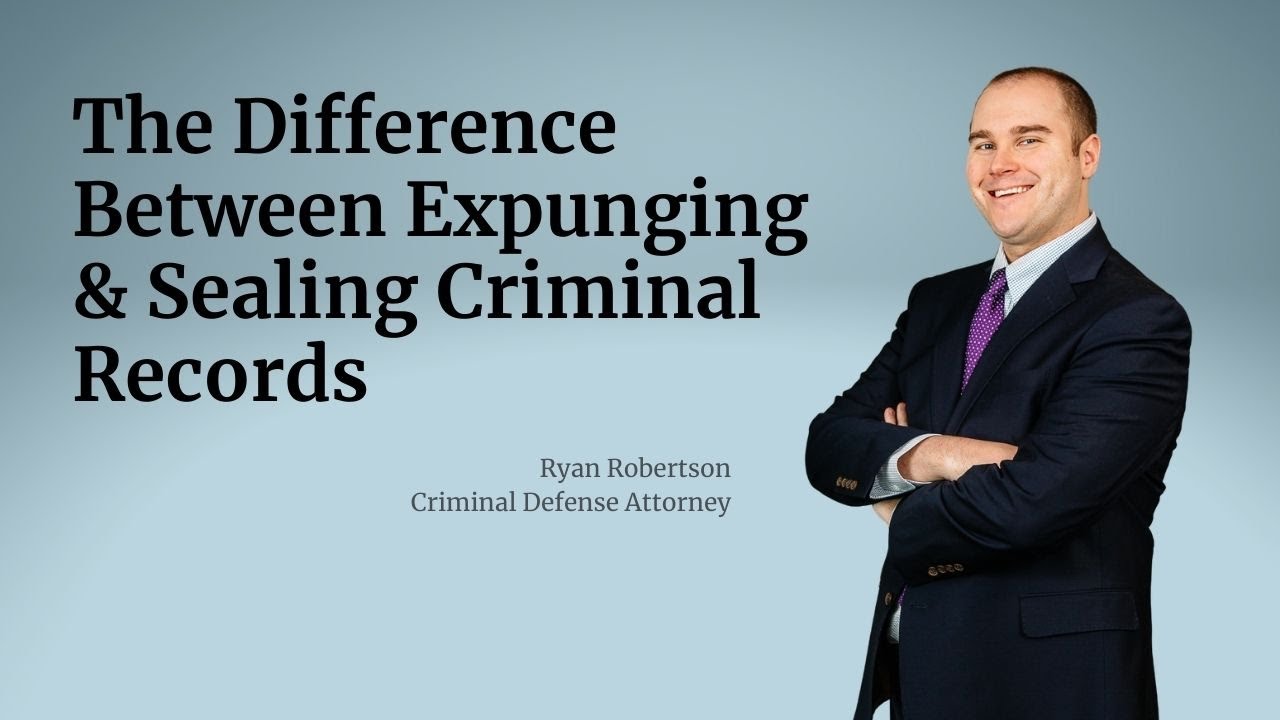Expunged and sealed are legal terms often used in the context of criminal records. While they may seem similar, there are distinct differences between the two that can have significant implications for individuals seeking to clear their past convictions. Understanding these differences can be crucial for anyone navigating the complexities of the legal system. When a criminal record is expunged, it means that the record is completely erased or destroyed. This process typically involves removing all information related to the conviction from public access, including databases, court records, and law enforcement files. Essentially, it is as if the conviction never occurred. This can be life-changing for individuals, as it allows them to legally deny or fail to acknowledge the conviction in most circumstances. On the other hand, when a criminal record is sealed, it means that the record still exists, but it is hidden from public view. This means that the general public, including potential employers or landlords, cannot access the record without a court order. However, certain government agencies and law enforcement entities may still have access to the sealed records. While sealing a record offers some level of privacy and protection, it does not provide the same level of relief as having a record expunged. The distinction between expungement and sealing can have far-reaching consequences for individuals seeking to move forward with their lives after a criminal conviction. It is important to consult with a knowledgeable attorney to determine the best course of action based on individual circumstances. Whether seeking complete erasure or restricted access, understanding the nuances of expungement and sealing is essential in pursuing a fresh start.

The Difference Between Expunged and Sealed
| Criteria | Expunged | Sealed |
|---|---|---|
| Definition | Expungement is the legal process of erasing a criminal record completely. | Sealing refers to the process of restricting access to a criminal record, making it confidential. |
| Accessibility | Once a record is expunged, it is typically no longer accessible to the public, law enforcement agencies, or employers during background checks. | Sealed records are generally not accessible by the public, but may still be accessible to certain government agencies or law enforcement. |
| Legal Effect | Expunging a record legally eliminates the existence of the criminal record, treating it as though it never existed. | Sealing a record does not erase it completely, but rather hides it from the view of most individuals. |
| Public Perception | Expungement is often seen as the most favorable outcome, as it allows individuals to truthfully deny the existence of the expunged record. | Sealing is considered a less comprehensive measure, as some parties may still be able to access the sealed record with proper authorization. |
| Eligibility | Expungement eligibility varies depending on jurisdiction, but generally requires meeting specific criteria such as completion of probation, no further criminal offenses, or a certain waiting period after the conviction. | Sealing eligibility also varies, but typically involves similar criteria as expungement, though it may be more accessible to individuals with minor offenses. |
| Effect on Record | Expunged records are usually physically destroyed or deleted from databases, leaving no trace of the offense. | Sealed records remain in existence but are made confidential, and access to them is highly restricted. |
Clearing Your Past: Unveiling the Difference Between Expunging and Sealing Criminal Records
Understanding the Difference between Expunged and Sealed Records
When it comes to criminal records, there are two common terms that often cause confusion: expunged and sealed. While both terms relate to the removal of criminal records, they have different legal implications and procedures. This article aims to shed light on the difference between expunged and sealed records, helping you understand the nuances of each.
Expunged Records: Erasure from the Record
Expungement refers to the complete removal or erasure of a criminal record from public view. When a record is expunged, it is as if the offense never occurred. Expunged records are typically destroyed or returned to the person who was charged, making them inaccessible to the public and most government entities.
Expungement laws vary from state to state, but they often apply to certain types of offenses, such as minor crimes or first-time offenses. The eligibility criteria for expungement can include factors like the nature of the offense, the time passed since the conviction, and whether the person has completed their sentence and probation.
Once a record is expunged, individuals can legally deny the existence of the expunged conviction in most circumstances. This means that they do not have to disclose the expunged offense when applying for jobs, housing, or other opportunities. However, expunged records may still be accessible to law enforcement agencies and certain government entities in specific circumstances.
Sealed Records: Hidden from Public View
Sealing a criminal record is a different process from expungement. When a record is sealed, it is not completely erased but rather hidden from public view. Sealed records are typically kept by the court or relevant government agency, and access is restricted to authorized personnel, such as law enforcement, certain employers, or government agencies.
Sealing a record does not make the offense disappear entirely, but it limits public access to the information. The process of sealing a record can vary by jurisdiction, and eligibility criteria are often more stringent than those for expungement. Some common factors considered for sealing include the type and severity of the offense, the age of the offender at the time of the offense, and whether the person has demonstrated rehabilitation.
In some cases, sealed records may be automatically opened for certain purposes, such as background checks for specific professions or when the individual is involved in subsequent criminal proceedings. However, in most situations, sealed records remain hidden from public view, and individuals are not required to disclose them.
Key Differences between Expunged and Sealed Records
1. Level of Accessibility: The primary difference between expunged and sealed records lies in the level of accessibility. While expunged records are generally inaccessible to the public and most government entities, sealed records are hidden from the public but may be accessible to authorized personnel.
2. Erasure vs. Access Restriction: Expungement erases the record completely, making it as if the offense never occurred. On the other hand, sealing restricts access to the record while keeping it intact, allowing authorized personnel to view it under specific circumstances.
3. Disclosure Requirements: Individuals with expunged records are often not required to disclose the expunged offense in most situations. In contrast, individuals with sealed records may be required to disclose the offense in certain contexts, such as when applying for specific licenses or working in sensitive positions.
4. Eligibility Criteria: The eligibility criteria for expungement and sealing differ. Expungement is commonly available for minor offenses or first-time offenses, while sealing often requires a more stringent evaluation of the circumstances surrounding the offense.
5. Legal Implications: Expunged records generally provide individuals with the legal right to deny the existence of the expunged offense. Sealed records, while hidden from the public, may still be accessible to certain authorized entities, and individuals may be required to acknowledge their existence in specific situations.
Conclusion
In summary, expunged and sealed records differ in the level of accessibility, erasure or access restriction, disclosure requirements, eligibility criteria, and legal implications. Expunged records completely erase the offense from public view, while sealed records hide the offense but keep it intact for authorized personnel. Understanding the difference between these terms can help individuals navigate the complexities of criminal record management and make informed decisions about disclosure and legal rights.

